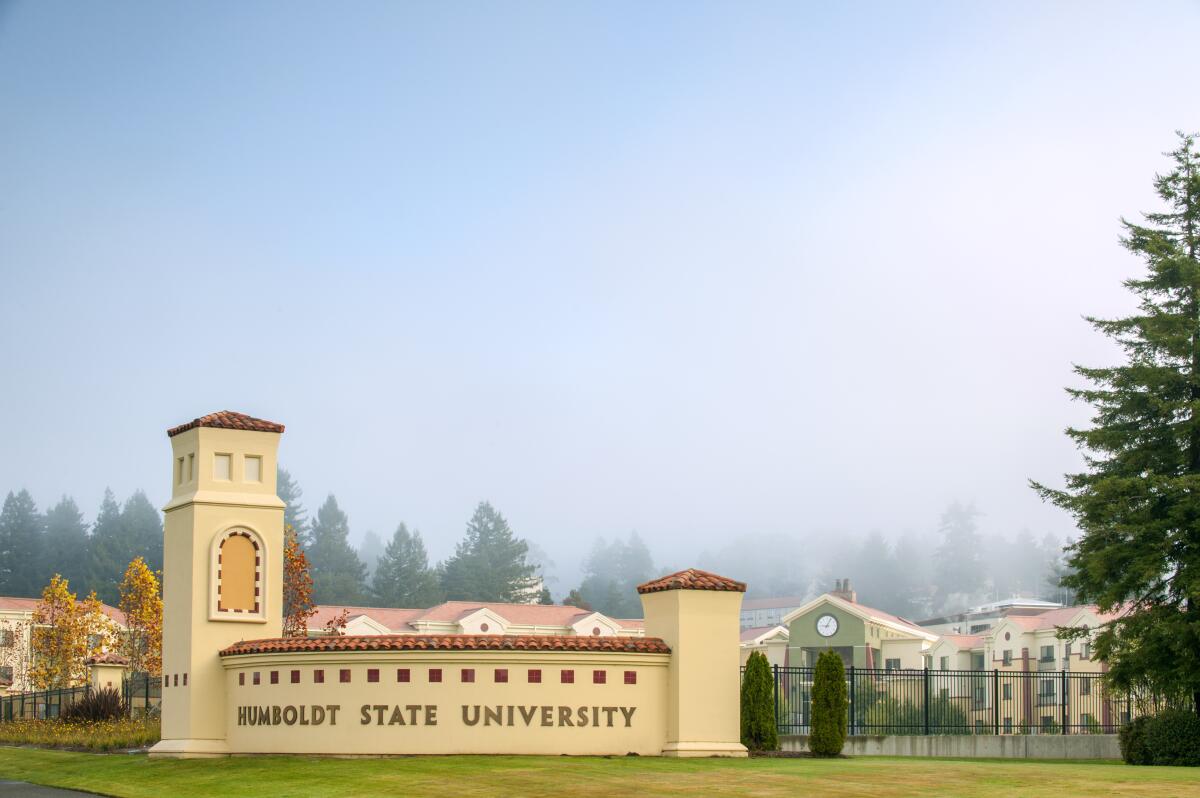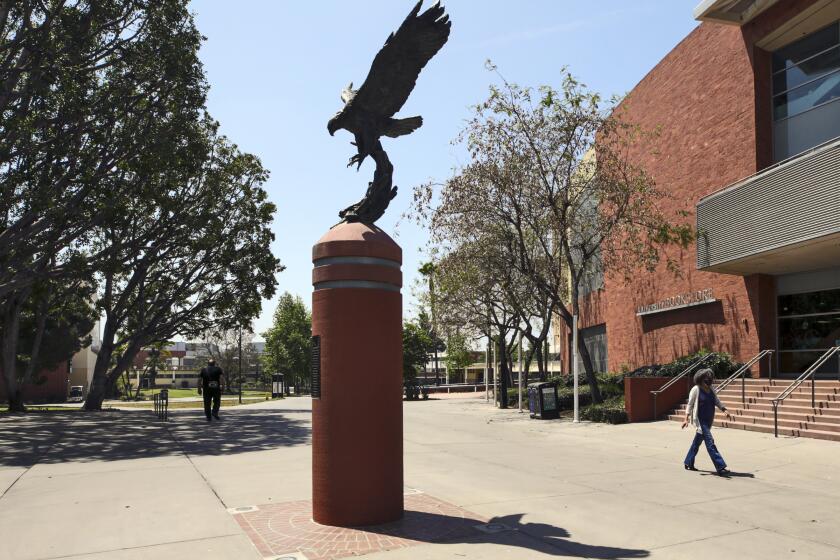Humboldt State gets a name and mission makeover as a ‘polytechnic university’

Humboldt State has a new name and an updated mission as a polytechnic university, a move aimed at increasing sagging enrollment at an underused campus with high-demand STEM education and research offerings.
The new Cal Poly Humboldt will be the third of its kind in the state, joining Cal Poly San Luis Obispo and Cal Poly Pomona.
“Cal Poly Humboldt will be a polytechnic for the 21st century, preparing students to address the urgent issues our society faces,” university President Tom Jackson Jr. said in a statement, after approval by the CSU trustees Wednesday.
The sweeping change is already set on the university’s website and on Twitter, where fellow Cal Poly campuses welcomed the newest member of the cohort.
Cal State’s polytechnic universities offer broader hands-on opportunities in STEM fields — science, technology, engineering and math — than other Cal State campuses.
Trustees of California State University agreed with a report saying the standardized tests are less effective than high school grades in predicting college success.
Last year, Gov. Gavin Newsom approved a $458-million investment for the expansion of Cal State’s STEM initiatives. In addition to the re-designation of Humboldt, the funding included $25 million to launch a technology hub at Cal State Northridge intended to draw Latinos and traditionally underserved students into STEM fields.
The state funding will help establish at least 12 academic programs by fall 2023 at Cal Poly Humboldt and will enhance research facilities. Proposed additional programs include energy systems engineering, geospatial analysis, cybersecurity and cannabis studies.
The university is 30% underenrolled, and Cal State officials hope the polytechnic designation will help draw more students, including from North Coast tribal communities. Current enrollment is more than 5,700, including nearly 5,200 undergraduate students. The university expects to see enrollment increase by 50% within three years and by 100% within seven years.
Cal State’s graduation rate in its 23-campus system is 33% for four-year first-time students and 63% for six-year first-time students. The goal is to increase those rates to 40% and 70%, respectively, by 2025.
“Between the established practices and programs led by first-rate faculty and staff, and the bold aspirations that they have for expanding curricula and serving greater numbers of talented students, Cal Poly Humboldt is a perfect fit as the CSU’s third polytechnic institution,” Chancellor Joseph I. Castro said in a statement.
The re-designation will not change the admissions process and tuition will not increase. Cal State is not increasing tuition in the 2022-23 academic year. Students who have already applied to the university do not need to reapply. Humboldt said one reason for a third polytechnic is to expand capacity for qualified applicants beyond the limited number accepted at Cal Poly San Luis Obispo and Cal Poly Pomona.
Former university President Rollin Richmond; former students, including Dan Phillips, who was recently chief technology officer of Hulu; and Jason Ramos, a Blue Ridge Area tribal member and Humboldt city manager, expressed support for the re-designation.
“The most important investment we can make is in our youth … and this is why I’m so excited about Humboldt State and the promise it brings as a polytechnic, about what it means for the North Coast,” said Ramos, who chaired a fundraising campaign for the university.
The change was initiated by former Chancellor Timothy White in 2020, who asked the university to explore the possibility of evolving into a polytechnic.
In its self-study, the university said it was the right choice because of its location — on the California coast, with access to rivers, redwood forests and the ocean — and the university’s commitment to equity and relationships with local tribes.
“Students are able to learn in a living laboratory studying in the forest, on an ocean-going research vessel, underwater in scientific diving courses, and in our Schatz energy lab,” the study stated. “As a polytechnic, our institution would become increasingly attractive to students from California and beyond, raise our national profile, increase the amount of grants for research, and inspire additional donations from individuals.”
More to Read
Sign up for Essential California
The most important California stories and recommendations in your inbox every morning.
You may occasionally receive promotional content from the Los Angeles Times.












